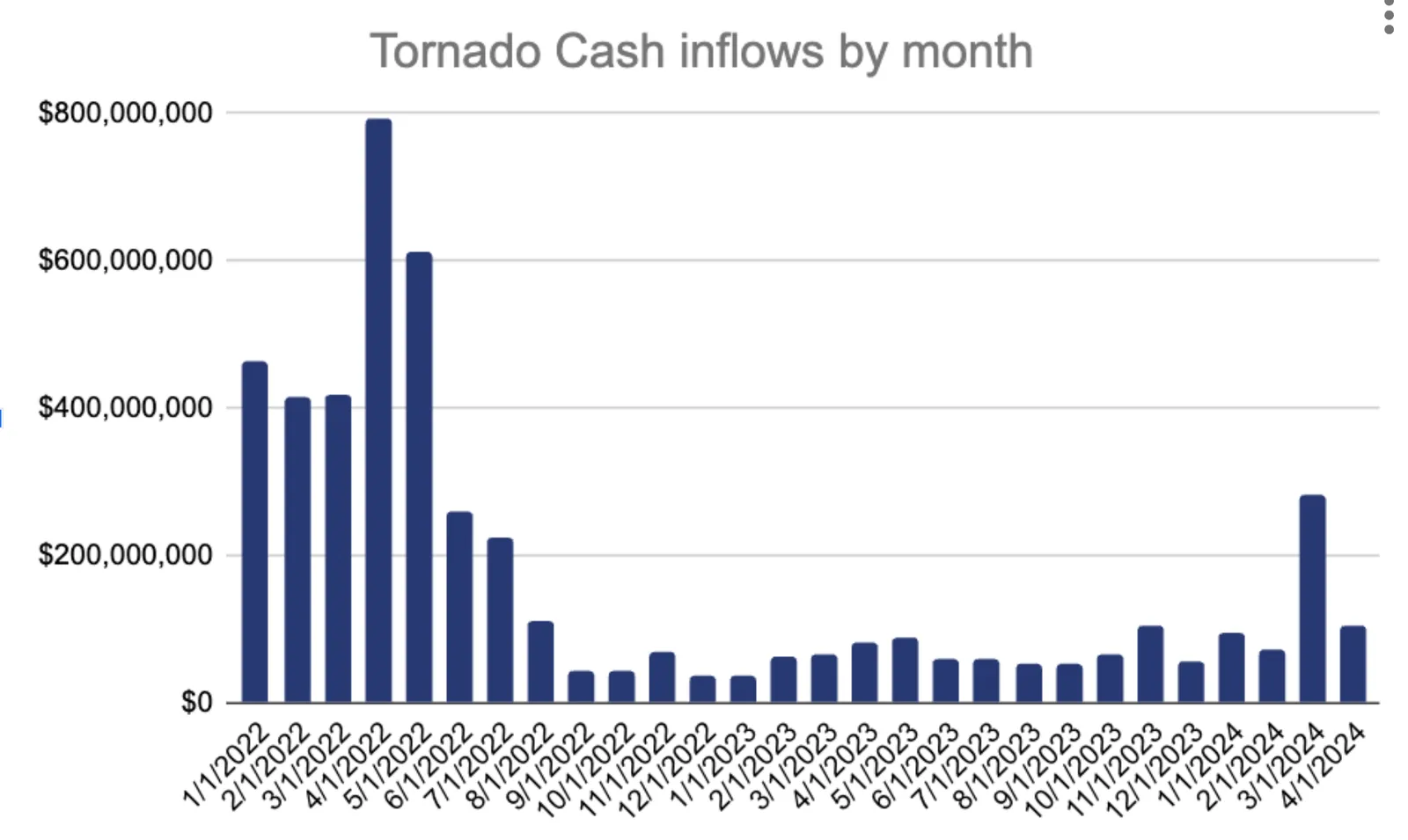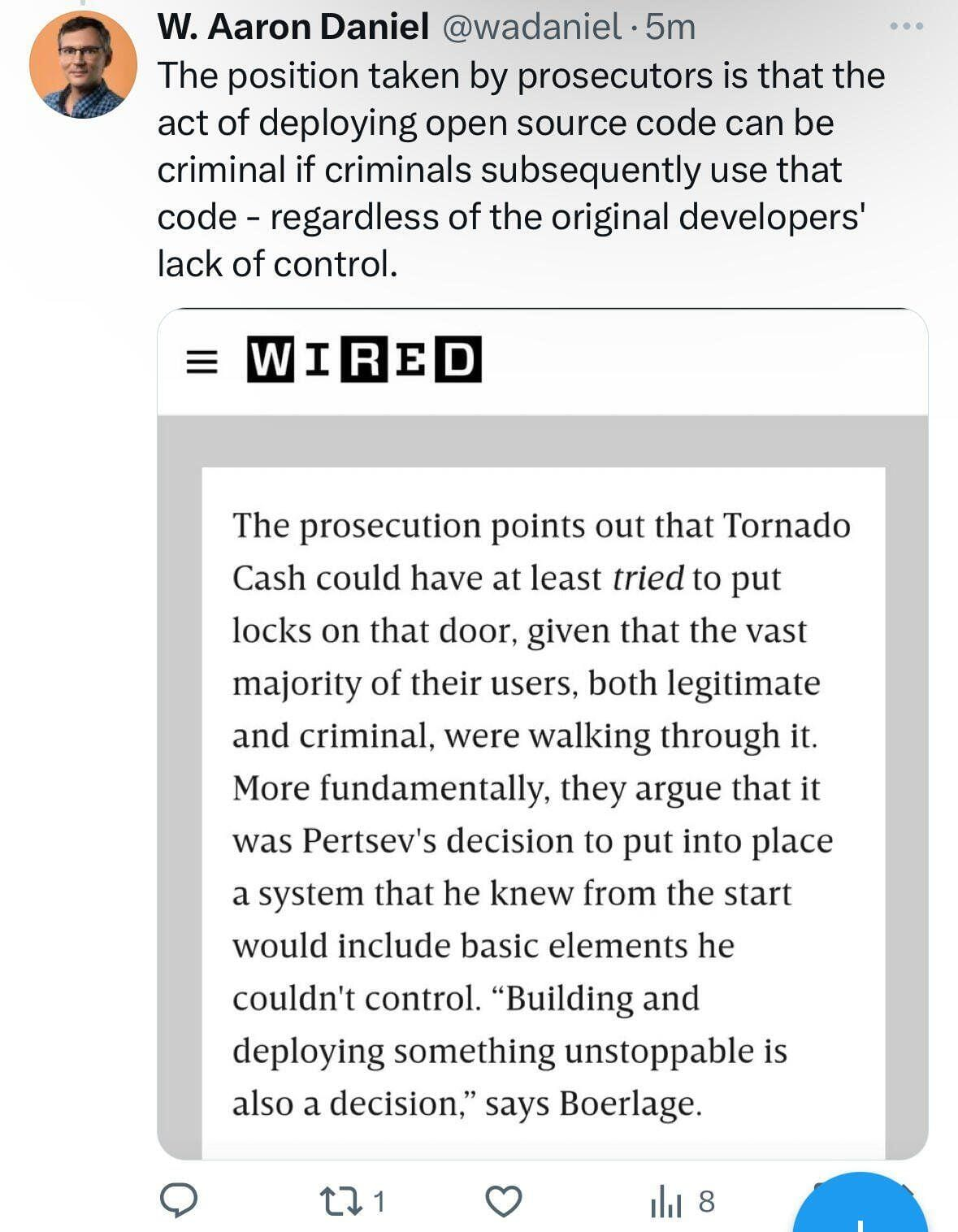Tornado Cash Developer Alexey Pertsev Sentenced to 64 Months in Prison in the Netherlands

Overview
Alexey Pertsev was on trial in the Netherlands, accused of enabling money laundering through Tornado Cash. Tornado Cash is an open-source, non-custodial Ethereum smart contract used to mix funds and improve transaction privacy.
Prosecutors argued that despite Tornado Cash's decentralized design, Pertsev made deliberate choices to enable criminals, allowing over $1 billion in stolen funds to flow through the service. Pertsev's defense argued he merely created an open-source tool and had no control over how it was used.
Pertsev was found guilty and sentenced to 64 months in prison. Pertsev has filed an appeal against the guilty verdict. His co-developer Roman Storm is also facing trial in the U.S. in September 2024 on related charges.
The verdict sets a precedent for holding developers of privacy tools accountable for illicit use, sparking debates around privacy rights and regulation of decentralized tools.
Key Points
- Prosecutors say Pertsev knew Tornado Cash was being used for money laundering but did little to stop it, even profiting from the service: "Choice after choice after choice, all while he knew that criminal money was entering his system. So it's not about code. It's about human behavior."
- Pertsev's defense contends there was no point in monitoring the service since its underlying smart contracts were decentralized and unstoppable: "Implementing checks within the surrounding infrastructure is akin to adding extra locks to a door that lacks surrounding walls."
- The case could set a precedent for liability of open-source software creators and the limits of cryptocurrency privacy tools.
- Despite its founders' arrests, Tornado Cash remains operational as a decentralized service, with $283 million flowing through in March 2024.
Reactions
The entire Tornado Cash verdict is completely insane and will turn the legality of building any privacy service on its head.
- Open-source devs building non-custodial tools can be held responsible for criminal activity when crim. actors cannot be stopped or deanonymized:
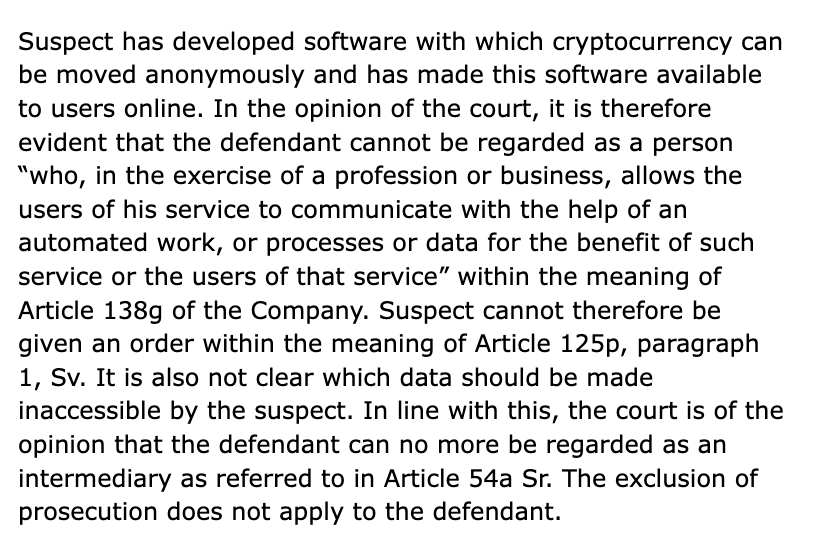
- TC cannot be classified as a communications service despite the fact that that's exactly what TC is: a tool to communicate transactions between users. It does not matter whether TC took custody of funds.
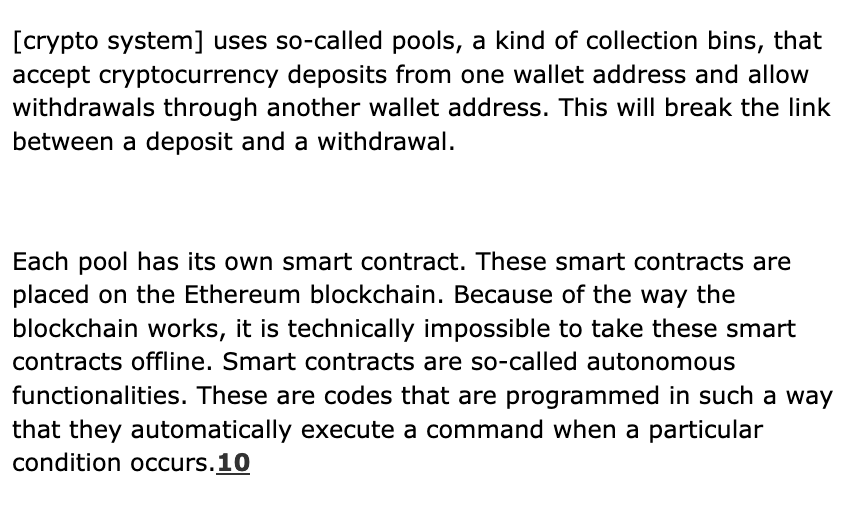
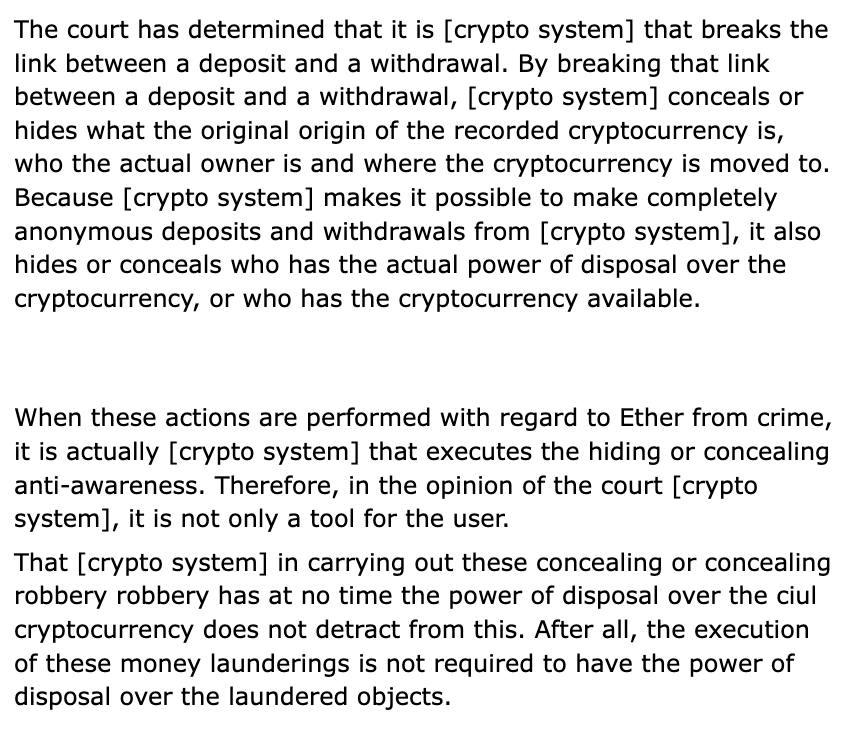
- Building an unstoppable privacy system is laid out to suggest criminal intent.
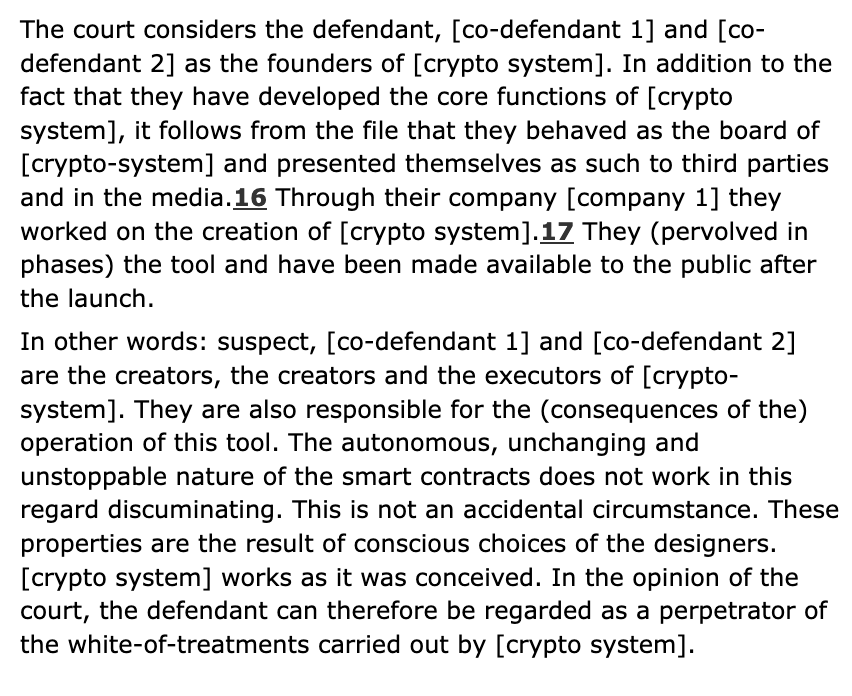
- TC dev was aware of money laundering activity in TC, laid out as intentional participation in the act.
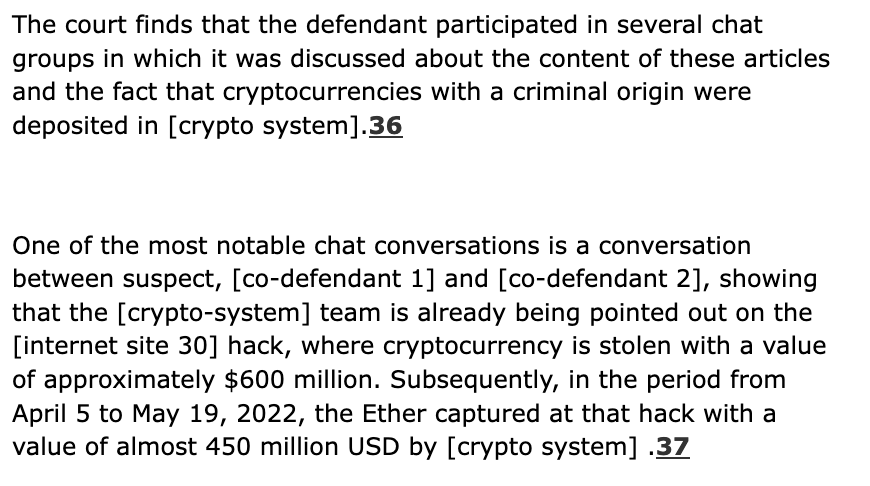
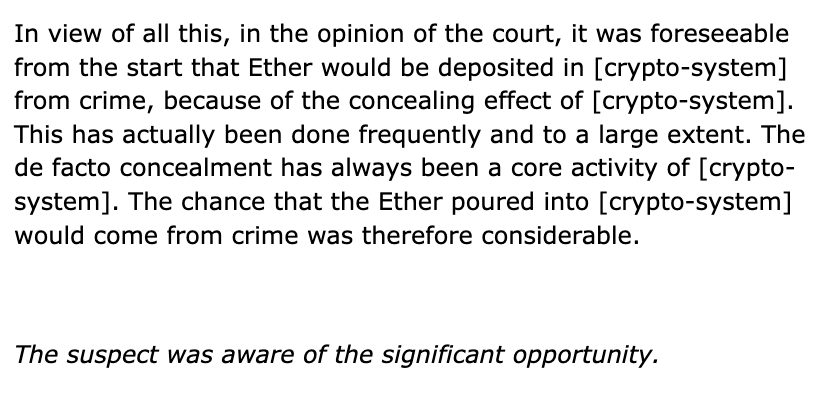
- Devs are fully responsible when their open source code is used for criminal activity through the development of source code and UIs.
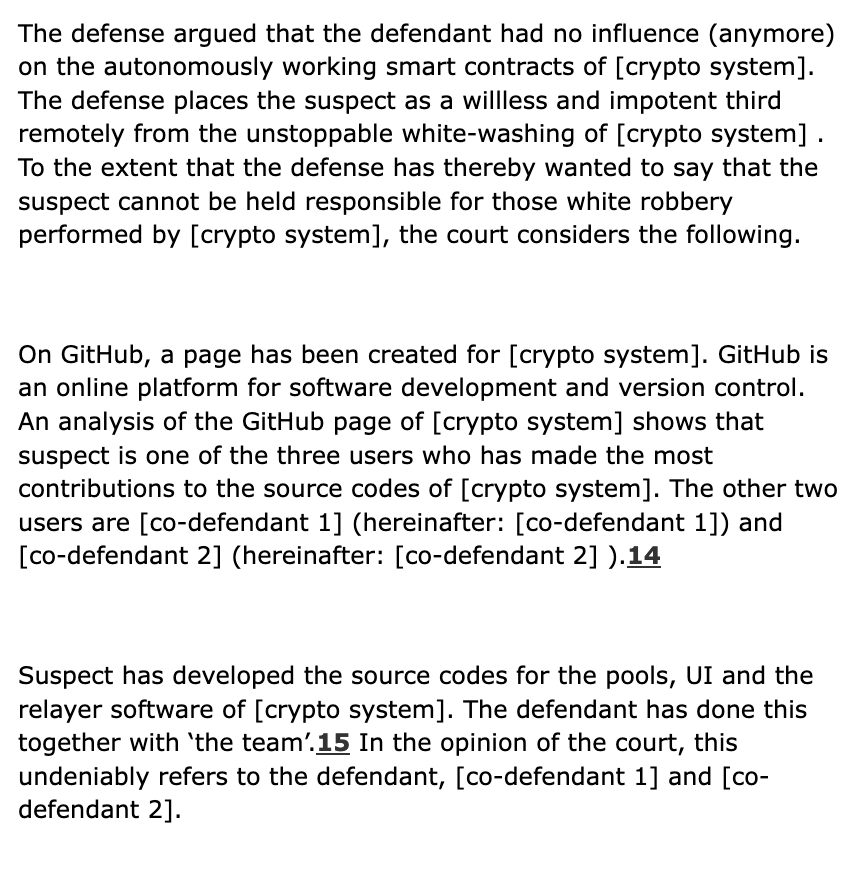
- As predicted, the verdict references FATF, which has no regulatory powers and operates with zero democratic oversight.
Meet FATF: The Financial Bullies Memberclub Trying To KYC The Planet
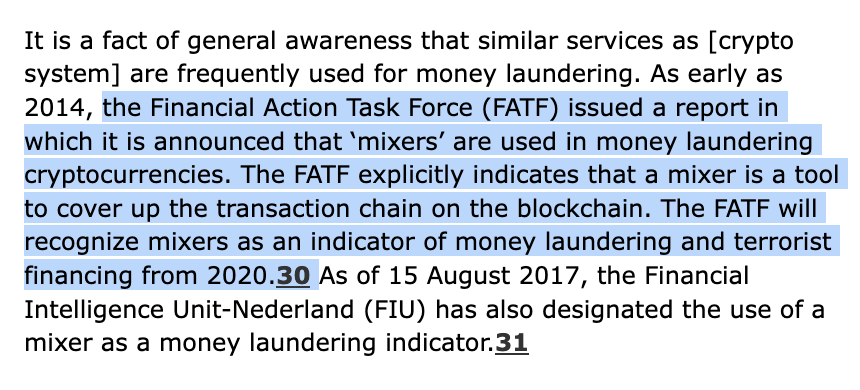
- The assumption that "criminal intent lies with the individuals and not the tools they use" seems void with the TC verdict. This verdict is a full on declaration of war against privacy service in existence.
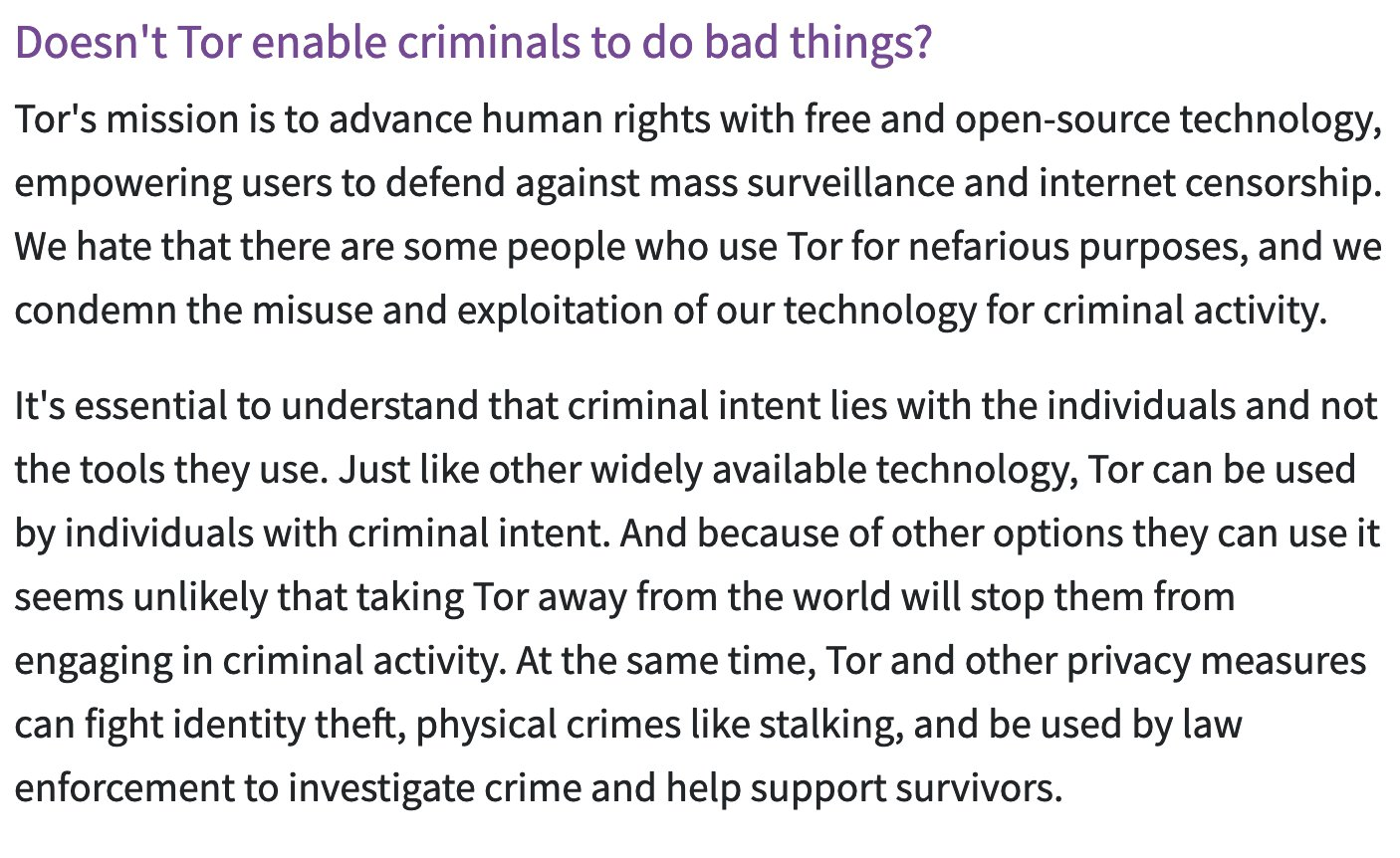
More Resources
- Case documents (Dutch) (English Summary of ruling)
- The $2.3 Billion Tornado Cash Case Is a Pivotal Moment for Crypto Privacy | WIRED
- Tornado Cash dev Alexey Pertsev sent straight to jail after Dutch court found him guilty – DL News
- Tornado Cash Developer Alexey Pertsev Will Face 64 Months in Prison in Money Laundering Case
- Tornado Cash developer Alexey Pertsev sentenced to 64 months: report | The Block
